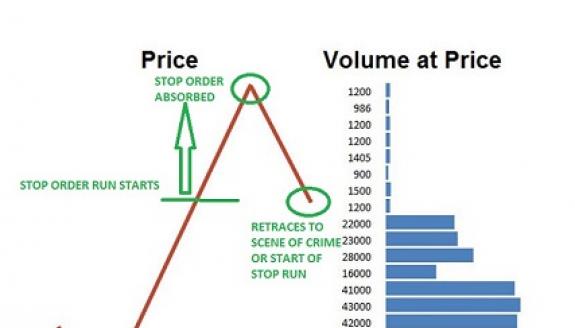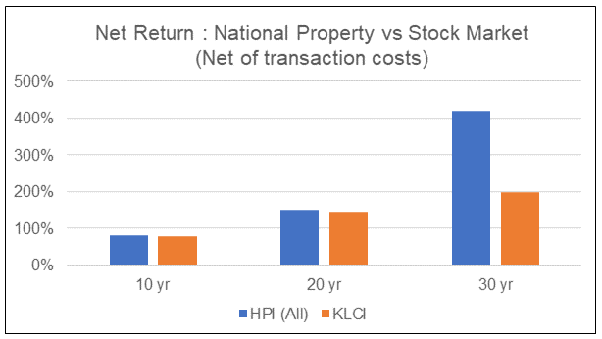
The process of buying a rental home can seem overwhelming, especially if it's your first time investing. If you aren't sure where to start, here are 15 important steps to purchasing a rental. These include making a downpayment, obtaining records for upgrades, screening tenants and much more. After making these key decisions, it will be much easier and fun to buy a rental house.
15 key steps to renting a property
There are several things you should do when purchasing a rental house. One of these is to have a positive cashflow from the property. This will decrease the risk and increase the chance of success. Unexpected expenses may occur even though the first-time buyer might have the best intentions. These expenses can be avoided by building your credit before purchasing a rental property. Building your credit before buying a rental home will increase your chances of being approved for a mortgage.

Next, review your financial situation. A large upfront investment is required to buy rental property. Location is of utmost importance. You should research your local rental rates and crime rates. Also, consider the amenities nearby. A side business that will allow you to own a rental property is a possibility. You'll need to deal with potential tenants as well as evicts.
Down payment requirements
The down payment amount for investment property is an important factor. In some cases, investors may only need to put down three percent. However, the downpayment for investment properties can be higher. In New York City, for example, the standard amount is twenty percent. This may seem like a large amount but it is much less risky for the lender. It is possible to add funds from your family. The down payment requirement in the US is typically between twenty- and thirty percent.
A rental property requires a similar down payment to a single-family home. Usually, investors have to pay three percent of a property's purchase price. However some lenders require twenty percent. For example, if a $375,000 duplex was purchased, you would need at least 30 percent. With a credit score below five hundred, you may be eligible for a loan with just three percent down.
Screening tenants
The right tenant is essential when renting a property. It is important to avoid paying late fees or having unhappy neighbors. You can avoid these issues by screening potential tenants before investing in rental properties. You should create a detailed plan to screen your tenants and keep it documented for future reference. You can also consult a lawyer to clarify any questions you may have about the legality and procedure.

Rent history reports include information about previous addresses, lengths of stays, and contact information for landlords and property managers. Background checks can reveal criminal records as well as public records regarding a potential tenant. The information will also reveal if the applicant has been sued for anything that may affect his or her ability to pay rent. It is a good practice to discuss the information in the rental report with the tenant.
FAQ
Why is a stock security?
Security is an investment instrument whose value depends on another company. It may be issued by a corporation (e.g., shares), government (e.g., bonds), or other entity (e.g., preferred stocks). If the asset's value falls, the issuer will pay shareholders dividends, repay creditors' debts, or return capital.
What is the difference in the stock and securities markets?
The whole set of companies that trade shares on an exchange is called the securities market. This includes stocks, bonds, options, futures contracts, and other financial instruments. Stock markets are usually divided into two categories: primary and secondary. Stock markets are divided into two categories: primary and secondary. Secondary stock exchanges are smaller ones where investors can trade privately. These include OTC Bulletin Board Over-the-Counter, Pink Sheets, Nasdaq SmalCap Market.
Stock markets are important as they allow people to trade shares of businesses and buy or sell them. It is the share price that determines their value. A company issues new shares to the public whenever it goes public. Dividends are paid to investors who buy these shares. Dividends are payments that a corporation makes to shareholders.
Stock markets provide buyers and sellers with a platform, as well as being a means of corporate governance. The boards of directors overseeing management are elected by shareholders. Boards ensure that managers use ethical business practices. If the board is unable to fulfill its duties, the government could replace it.
What is a bond and how do you define it?
A bond agreement between two parties where money changes hands for goods and services. Also known as a contract, it is also called a bond agreement.
A bond is typically written on paper and signed between the parties. The bond document will include details such as the date, amount due and interest rate.
The bond can be used when there are risks, such if a company fails or someone violates a promise.
Sometimes bonds can be used with other types loans like mortgages. This means that the borrower has to pay the loan back plus any interest.
Bonds can also help raise money for major projects, such as the construction of roads and bridges or hospitals.
The bond matures and becomes due. When a bond matures, the owner receives the principal amount and any interest.
Lenders lose their money if a bond is not paid back.
What are some of the benefits of investing with a mutual-fund?
-
Low cost - buying shares from companies directly is more expensive. It's cheaper to purchase shares through a mutual trust.
-
Diversification: Most mutual funds have a wide range of securities. The value of one security type will drop, while the value of others will rise.
-
Professional management - professional managers make sure that the fund invests only in those securities that are appropriate for its objectives.
-
Liquidity is a mutual fund that gives you quick access to cash. You can withdraw your funds whenever you wish.
-
Tax efficiency: Mutual funds are tax-efficient. So, your capital gains and losses are not a concern until you sell the shares.
-
No transaction costs - no commissions are charged for buying and selling shares.
-
Mutual funds are easy-to-use - they're simple to invest in. All you need to start a mutual fund is a bank account.
-
Flexibility – You can make changes to your holdings whenever you like without paying any additional fees.
-
Access to information - you can check out what is happening inside the fund and how well it performs.
-
Investment advice - ask questions and get the answers you need from the fund manager.
-
Security – You can see exactly what level of security you hold.
-
You have control - you can influence the fund's investment decisions.
-
Portfolio tracking - you can track the performance of your portfolio over time.
-
Easy withdrawal - You can withdraw money from the fund quickly.
There are some disadvantages to investing in mutual funds
-
Limited investment opportunities - mutual funds may not offer all investment opportunities.
-
High expense ratio. The expenses associated with owning mutual fund shares include brokerage fees, administrative costs, and operating charges. These expenses can impact your return.
-
Lack of liquidity-Many mutual funds refuse to accept deposits. They must only be purchased in cash. This limits your investment options.
-
Poor customer service. There is no one point that customers can contact to report problems with mutual funds. Instead, contact the broker, administrator, or salesperson of the mutual fund.
-
Ridiculous - If the fund is insolvent, you may lose everything.
Statistics
- Individuals with very limited financial experience are either terrified by horror stories of average investors losing 50% of their portfolio value or are beguiled by "hot tips" that bear the promise of huge rewards but seldom pay off. (investopedia.com)
- The S&P 500 has grown about 10.5% per year since its establishment in the 1920s. (investopedia.com)
- Ratchet down that 10% if you don't yet have a healthy emergency fund and 10% to 15% of your income funneled into a retirement savings account. (nerdwallet.com)
- Even if you find talent for trading stocks, allocating more than 10% of your portfolio to an individual stock can expose your savings to too much volatility. (nerdwallet.com)
External Links
How To
How to Invest in Stock Market Online
The stock market is one way you can make money investing in stocks. There are many options for investing in stocks, such as mutual funds, exchange traded funds (ETFs), and hedge funds. Your investment strategy will depend on your financial goals, risk tolerance, investment style, knowledge of the market, and overall market knowledge.
Understanding the market is key to success in the stock market. This includes understanding the different investment options, their risks and the potential benefits. Once you understand your goals for your portfolio, you can look into which investment type would be best.
There are three main types: fixed income, equity, or alternatives. Equity refers to ownership shares of companies. Fixed income can be defined as debt instruments such bonds and Treasury bills. Alternatives are commodities, real estate, private capital, and venture capital. Each option comes with its own pros and con, so you'll have to decide which one works best for you.
Two broad strategies are available once you've decided on the type of investment that you want. One strategy is "buy & hold". You purchase some of the security, but you don’t sell it until you die. The second strategy is called "diversification." Diversification involves buying several securities from different classes. You could diversify by buying 10% each of Apple and Microsoft or General Motors. Multiple investments give you more exposure in different areas of the economy. You are able to shield yourself from losses in one sector by continuing to own an investment in another.
Another important aspect of investing is risk management. You can control the volatility of your portfolio through risk management. A low-risk fund could be a good option if you are willing to accept a 1% chance. A higher-risk fund could be chosen if you're willing to accept a risk of 5%.
Your money management skills are the last step to becoming a successful investment investor. Planning for the future is key to managing your money. A good plan should cover your short-term goals, medium-term goals, long-term goals, and retirement planning. Sticking to your plan is key! Don't get distracted by day-to-day fluctuations in the market. Keep to your plan and you will see your wealth grow.